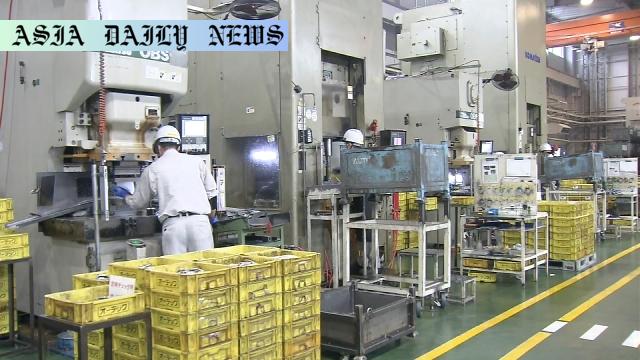Tariff: Autec aims to cut costs and enhance quality while investing in automation and AI to counter the effects of the Trump tariff.

Japanese Auto Parts Maker Responds to US Auto Tariffs
The Trump administration’s imposition of a 25 percent tariff on auto imports has sent shockwaves across the automotive industry, particularly for foreign suppliers. In Japan, Aichi-based company Autec, which produces a range of metal components for engine and exhaust systems, is among the firms reeling from this policy shift. Concerned about the potential for US-based automakers to turn to domestic parts suppliers, Autec is charting a proactive path by investing in automation and artificial intelligence (AI) to stay competitive.
Key Challenges and the Need for Immediate Action
Autec’s products are integral to many cars destined for the United States, which makes the firm particularly vulnerable to the sweeping tariff policy. The 25% levy is not just a price hike but also an incentive for automakers to reevaluate their procurement strategies and consider local suppliers to undercut costs. For a company like Autec, which relies on export-driven revenue, this scenario demands immediate action. Last month, the company convened internal discussions on how to reinforce competitiveness against the effects of this tariff.
Strategic Investments in Automation and AI
To combat this industry upheaval, Autec has announced strategic investments in advanced production technologies. The company plans to automate its metal pressing operations to enhance manufacturing efficiency. Alongside automation, it is integrating AI into its quality control systems. These advancements are expected to significantly reduce production costs while enhancing precision and product quality, which could be the critical factors in retaining US automotive clients who may feel the pull of domestic options.
Balancing Cost Efficiency with Quality Excellence
According to Autec executive Ogawa Daisuke, merely slashing costs will not suffice to win the trust of automakers. Quality remains a top priority for car manufacturers worldwide. Therefore, Autec’s dual focus on cost reduction and quality improvement aims to position the company as an irreplaceable supplier, even in the face of the steep tariff. By integrating cutting-edge technology into its production lines, Autec hopes to not only meet but exceed client expectations.
The Broader Impact of the Tariff
The ripple effects of the tariff extend beyond companies like Autec. This policy could potentially disrupt global supply chains, forcing companies to reevaluate their sourcing strategies and leading to a more fragmented global manufacturing landscape. For foreign suppliers like Autec, the stakes are high. Retaining existing customers amid such challenging economic conditions is critical to sustaining operations in one of the most competitive industries in the world.
Conclusion: Innovating to Survive
As the trade landscape shifts, companies like Autec demonstrate the resilience and innovation required to withstand economic headwinds. By leveraging automation technologies and AI, the company is taking decisive steps to adapt to new market dynamics. These measures underline a broader shift toward technological investments as a critical survival strategy for global manufacturers amid rising protectionism.
Commentary
The Implications of the US Tariff on Global Trade
The implementation of a 25% tariff on automotive imports by the Trump administration represents a dramatic shift in US trade policy. Its impact has been multi-faceted, extending beyond American borders to influence global trade and manufacturing dynamics. For companies like Autec, this has created an urgent need to reevaluate operational strategies to maintain competitiveness.
Autec’s Strategic Response
Autec’s decision to invest in automation and artificial intelligence is both practical and forward-thinking. It reflects an understanding that technological innovation is paramount in reducing operational costs while maintaining high-quality standards. These internal investments illustrate how companies must adapt not only to survive but also to thrive amid adverse economic policies.
Quality vs. Cost: A Delicate Balance
One of the most compelling aspects of this story is Autec’s recognition that quality cannot be sacrificed in favor of cost-cutting. For automakers, consistent quality is non-negotiable, and any hiccup in this area could open the door to competitors. By automating labor-intensive operations and employing AI for quality control, Autec is addressing both cost and quality challenges simultaneously—a strategy likely to yield positive results even in a strained global market.
Looking Ahead
The case of Autec raises important questions about how companies can best prepare for a future characterized by volatile trade policies and rising protectionism. While the international trade environment remains uncertain, Autec’s proactive approach serves as a blueprint for resilience and adaptation. With greater investments in technology and a commitment to quality assurance, the company is leveraging challenges as opportunities to grow and innovate.


